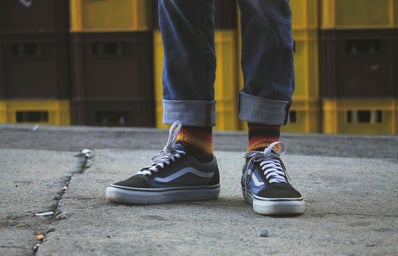Most of us have a slight shopping problem. We always catch ourselves online shopping, buying things when we’re bored, or impulse buying clothing items at the mall because a shirt at Forever 21 is under $5! But have you ever thought how a shirt could possibly be under $5 or a layering cami to be $2.90? It’s definitely not an ethical way of production. Since many ethically made clothing are very expensive and do not do well with our college wallets we tend to ease away from those companies and look at fast fashion companies like Forever 21, Charlotte Russe, and etc…
Think about it. The production of clothes is based off of simple economics: supply and demand. People demand these low quality t shirts so the companies keep making them. We have all been there, we buy a shirt for super cheap, throw it in the wash, have it come out completely unwearable, and we end up tossing the clothing article. Is buying a cheap shirt really worth wearing it for one time and then polluting our planet? The fashion world is a really big player when it comes to pollution and waste management. Based off of research done by EcoWatch, “Fast Fashion is the Second Dirtiest Industry in the World, Right Next to Big Oil. A simple piece of garmet goes through many hands and machines before it gets to your closet. You have the harvesting of the materials, the production of the materials, the shipping of the materials, and the disposal of any waste from those materials. It’s hard to grasp this concept because whenever we think about pollution and the polluters we think of huge oil tycoons and large factories, we never really think about the clothes on our backs.
“Globalization means that your shirt likely traveled halfway around the world in a container ship fueled by the dirtiest of fossil fuels. A current trend in fashion retail is creating an extreme demand for quick and cheap clothes and it is a huge problem. Your clothes continue to impact the environment after purchase; washing and final disposal when you’re finished with your shirt may cause more harm to the planet than you realize.” -Glynis Sweeny
One way you can help reduce your waste is to go thrifting or conducting clothing swaps with your friends/campus organizations! Thinking back to economics and that supply and demand curve, the clothes in the thrift stores are already made so there really isn’t any new production of these clothes. It’s keeping the demand for new clothes down which will also lower the supply and production of those clothes. Thrift stores are also wallet friendly too. They offer great discounts throughout the week such as 50% off with a tag of a specific color. Goodwill also has 10% off your purchase with Student ID’s on Fridays. You can score rad items for a very low price like vintage jackets and great mom jeans.
Thrifting isn’t always easy though. You defnintely have to go in there with an open mind and a lot of time to be able to sort through the racks of clothing. But please try it out and think about the earth before you buy that cute top from a fast fashion store. Is it really worth polluting our planet even more?


